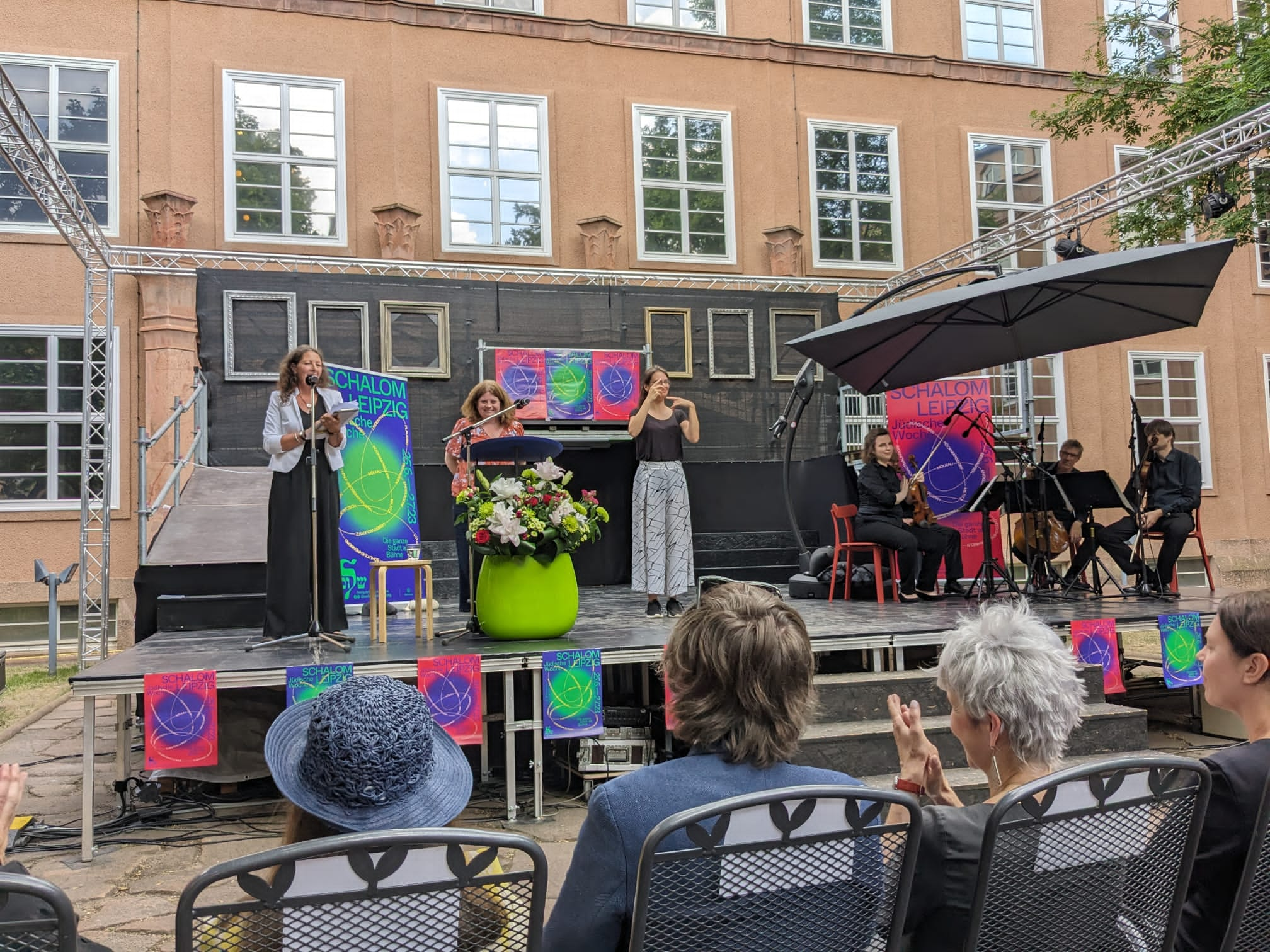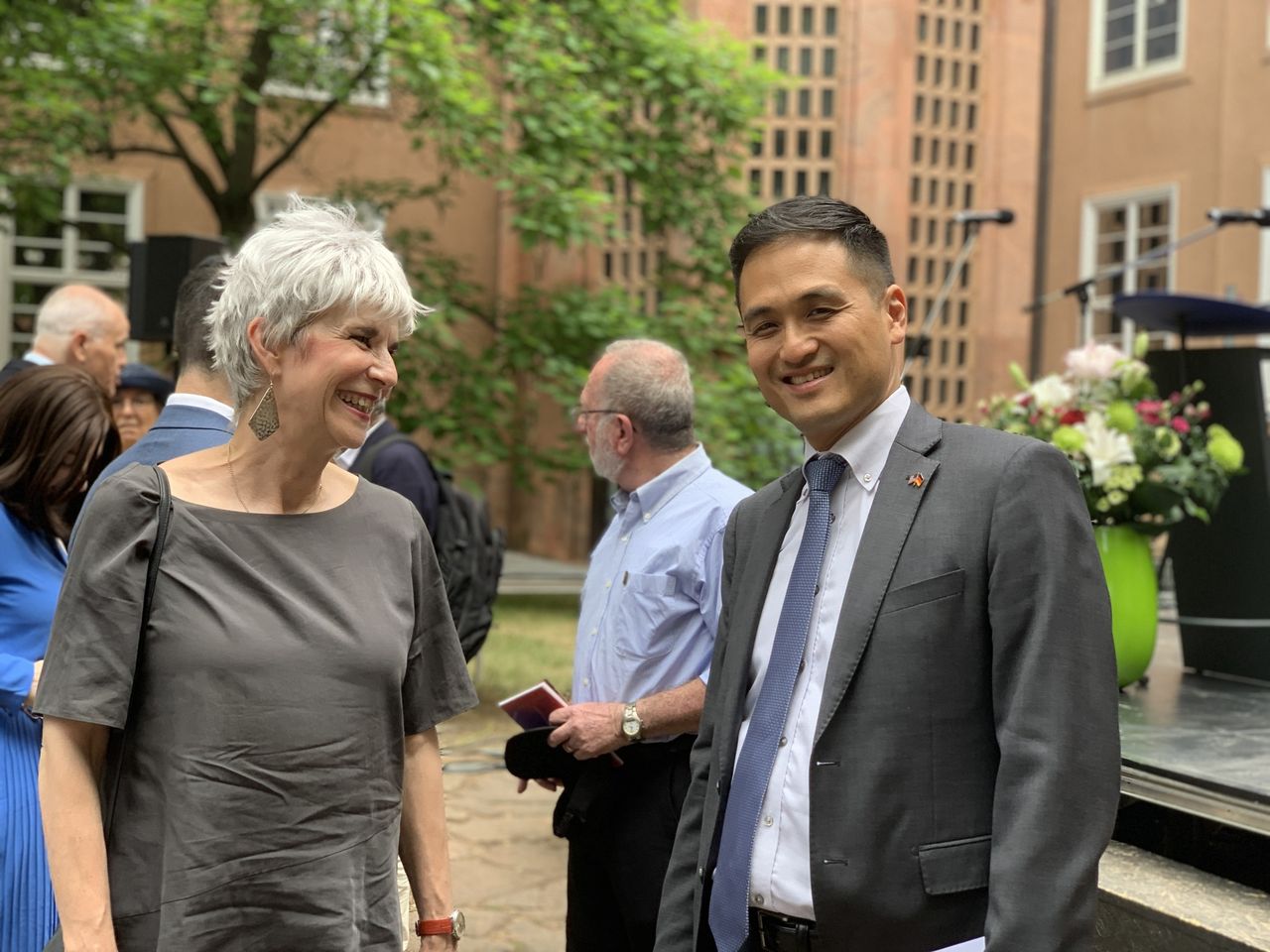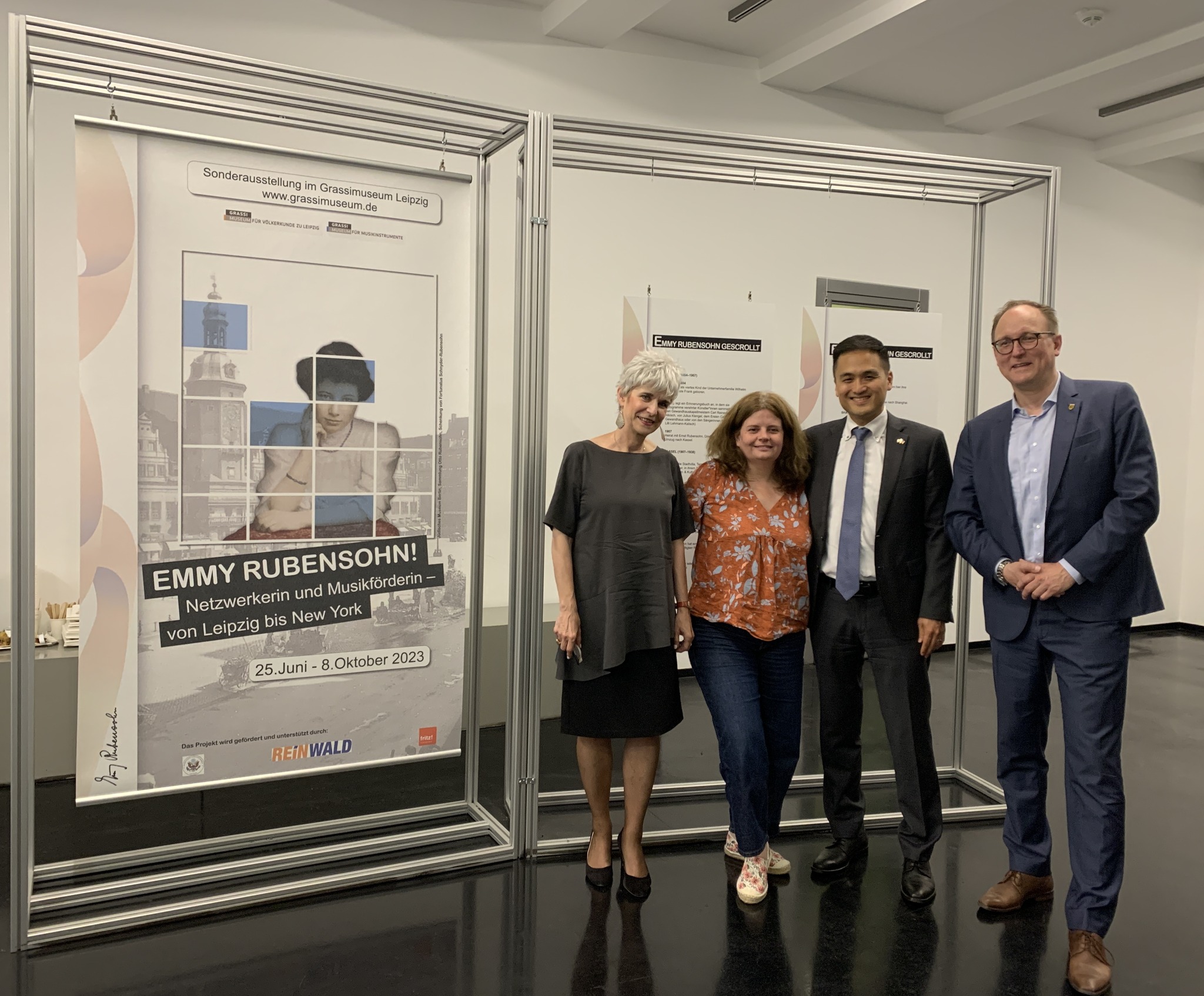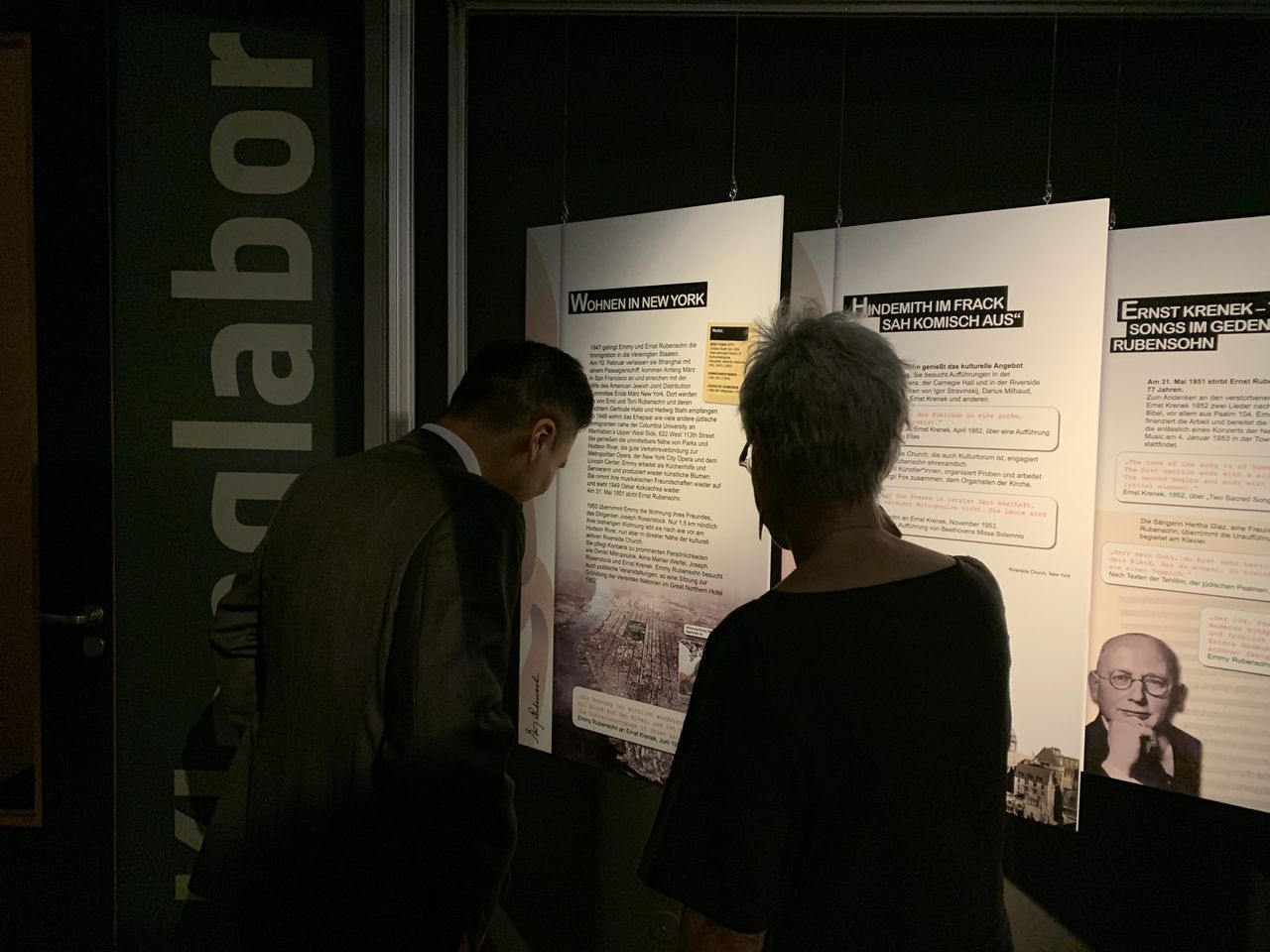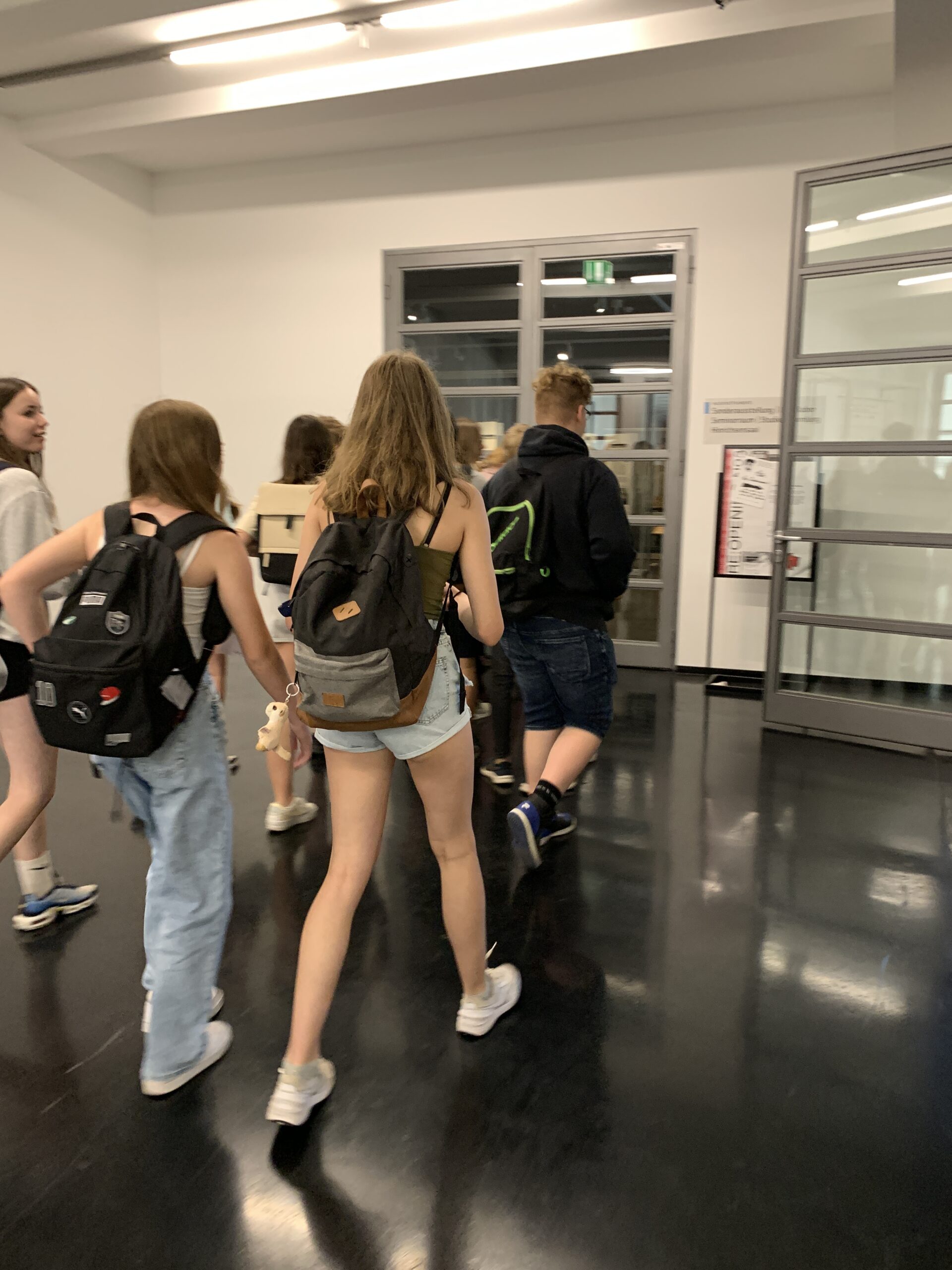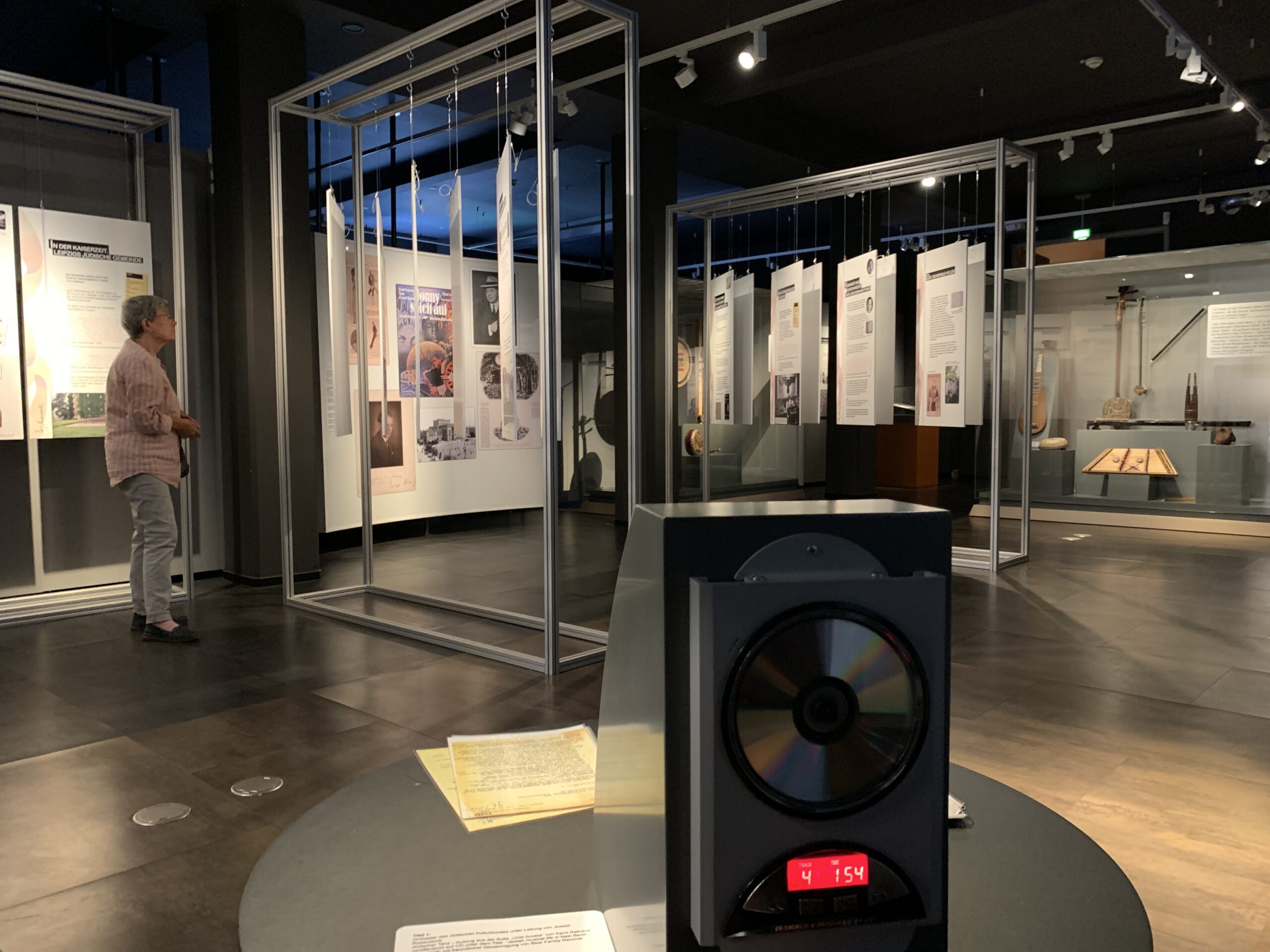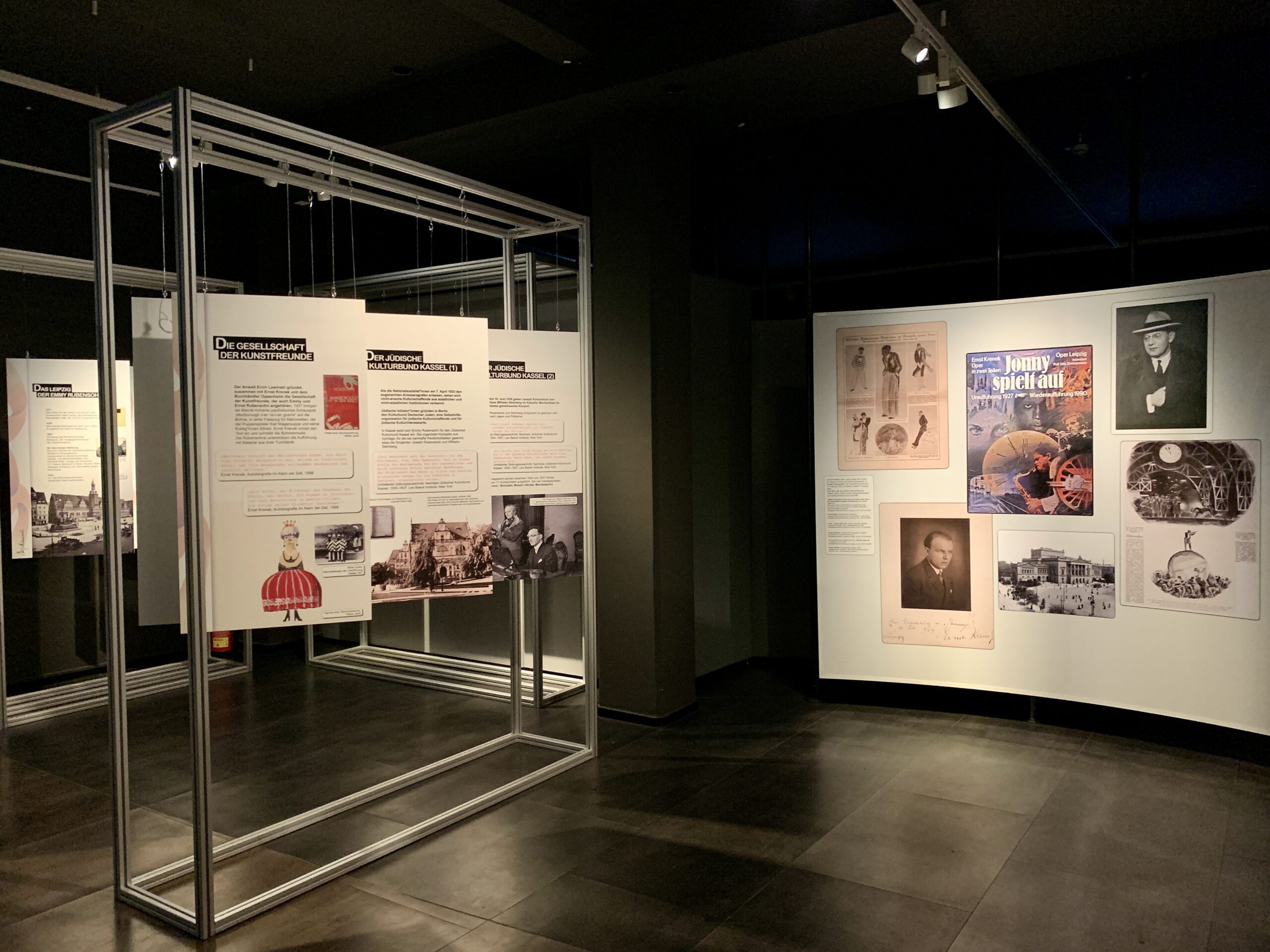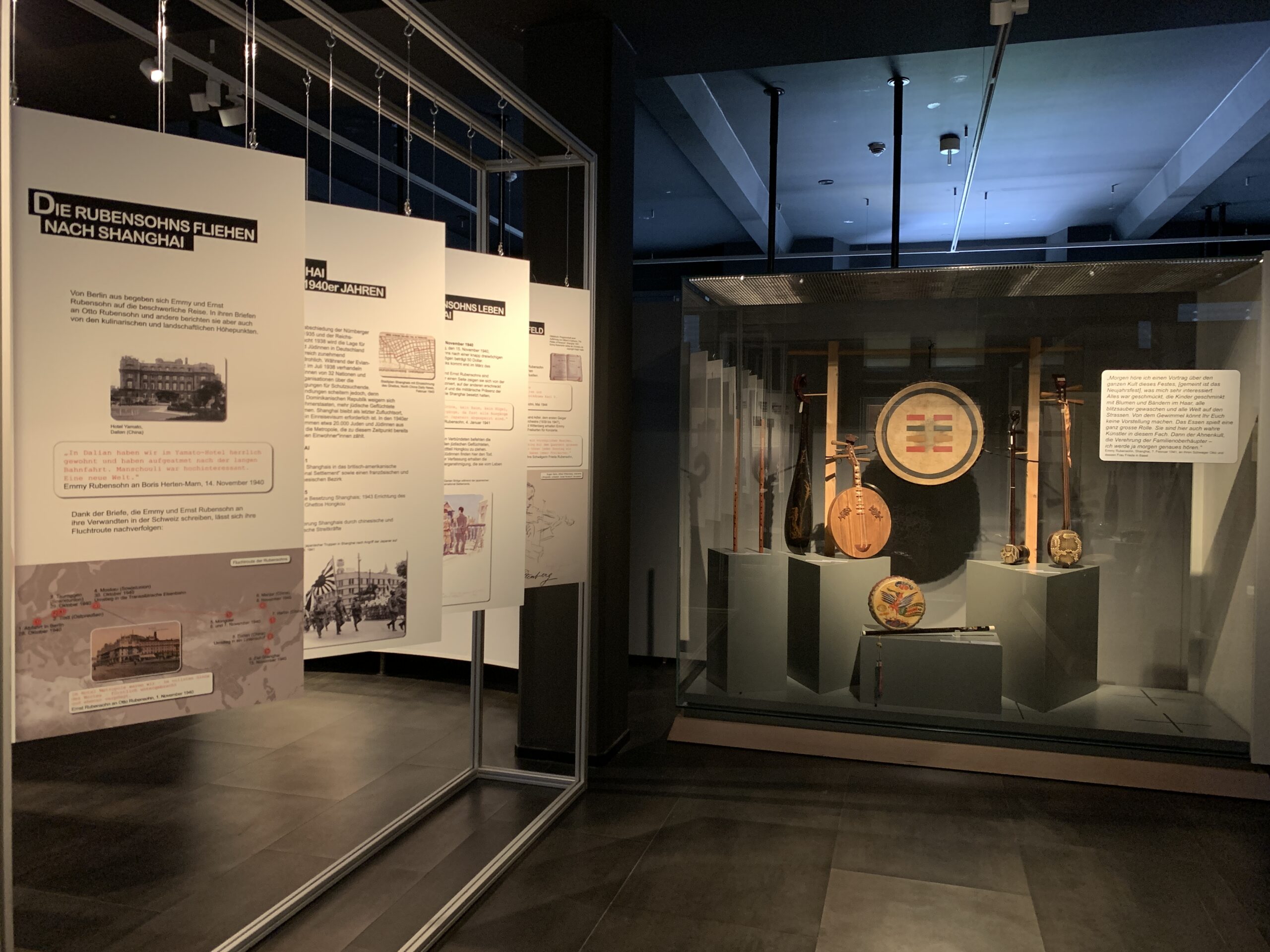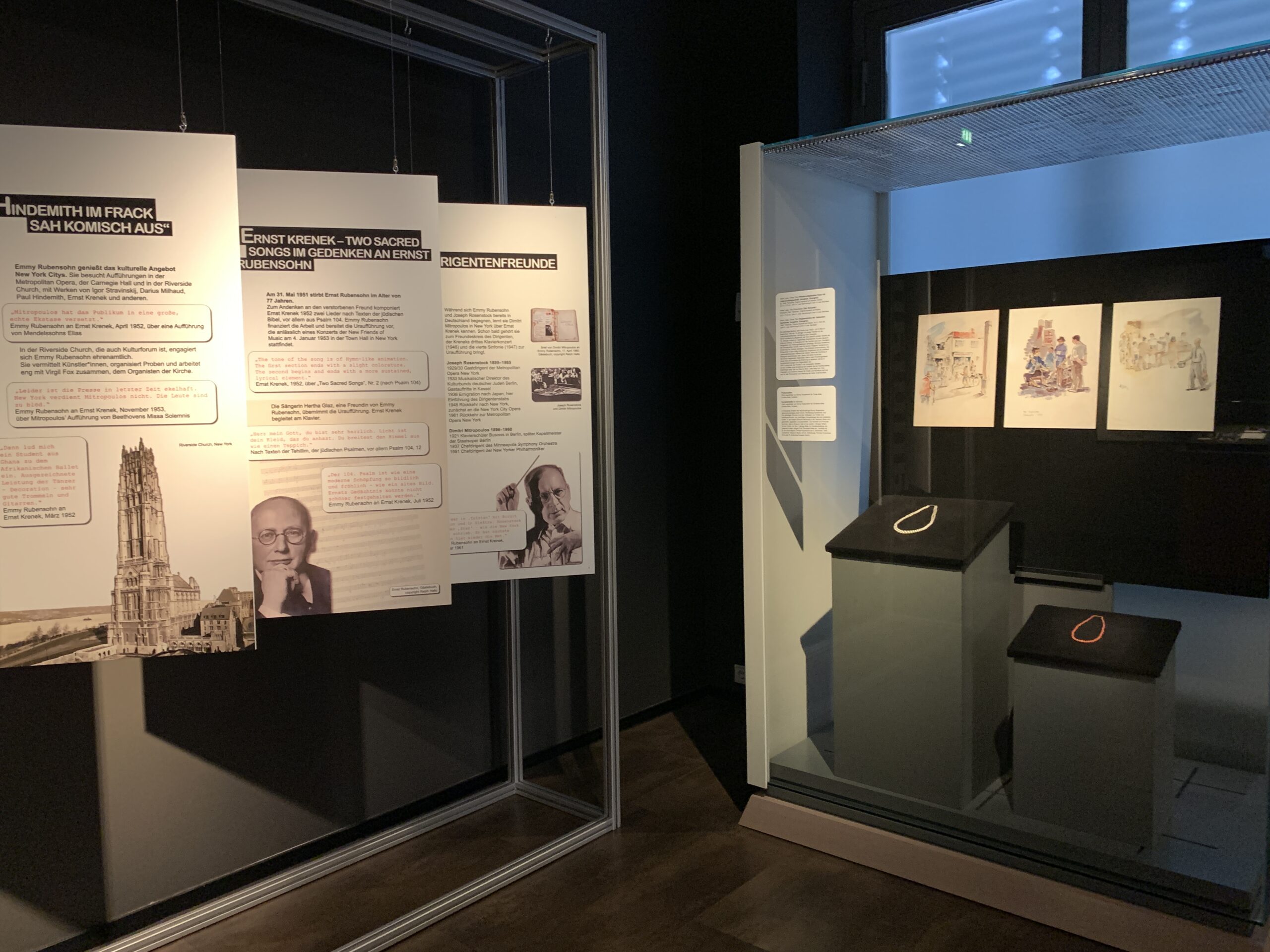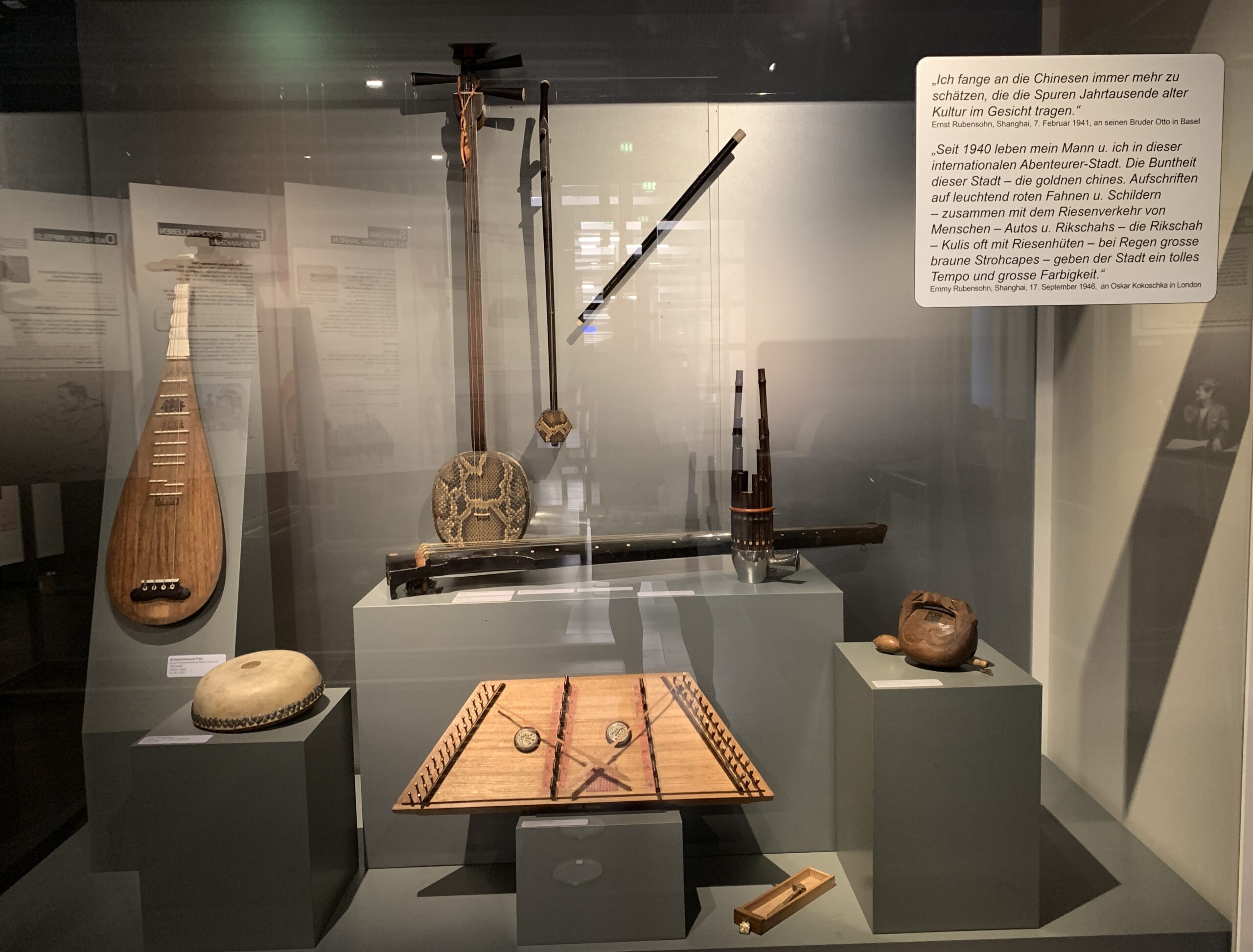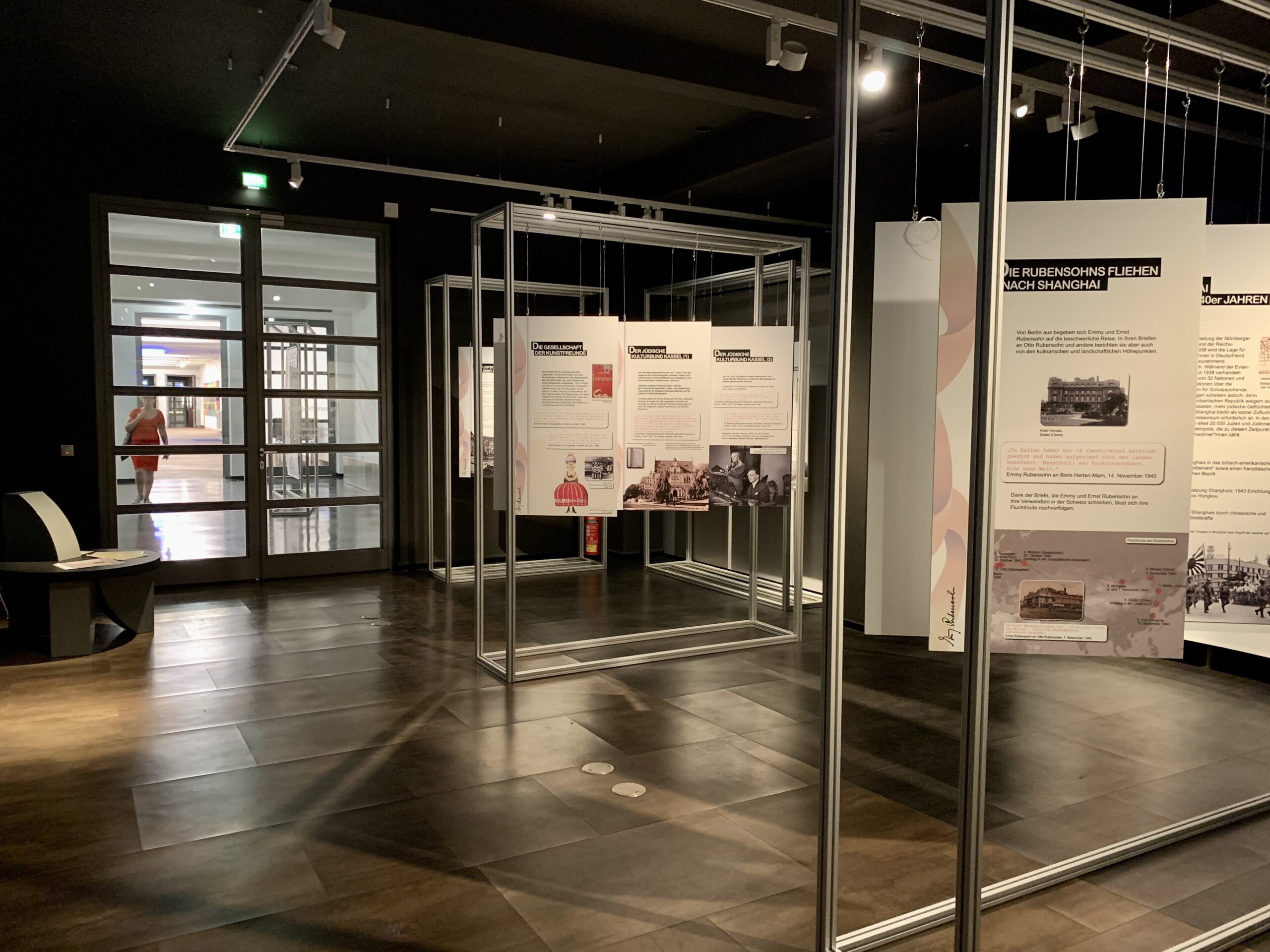
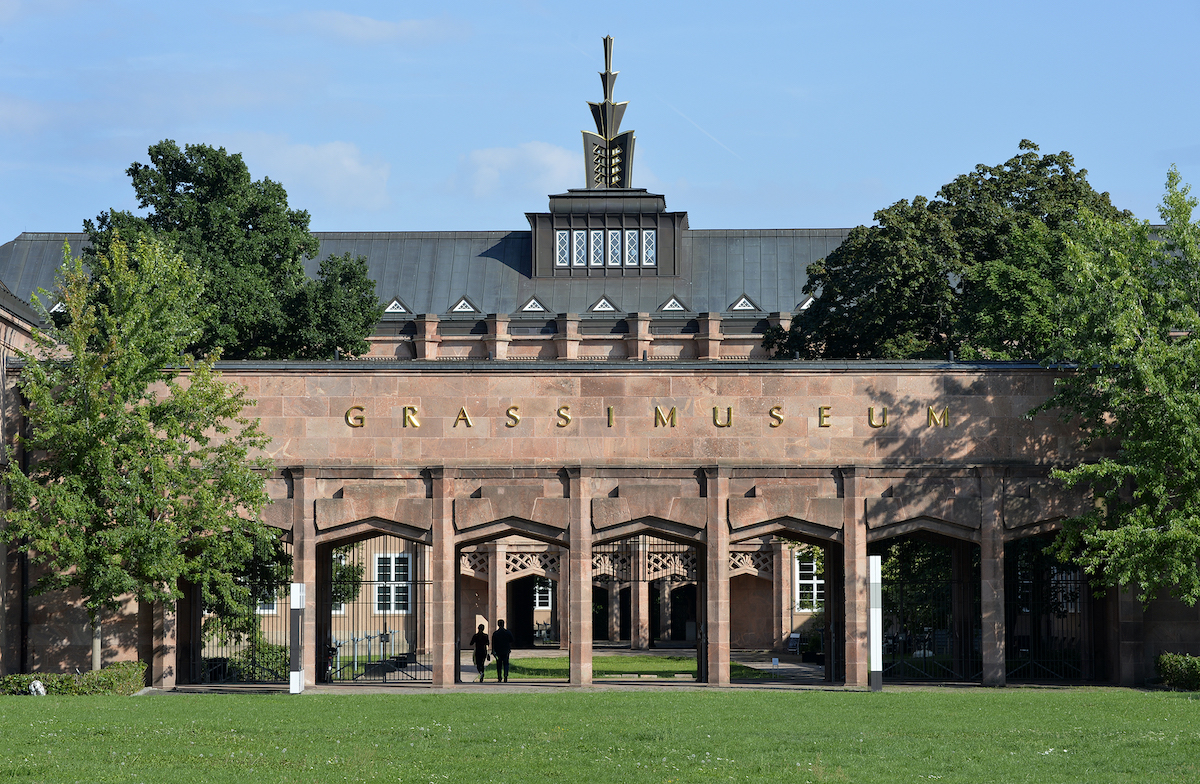
Emmy Rubensohn! Netzwerkerin und Musikförderin – von Leipzig bis New York
June 25 – January 14, 2024
Museen im GRASSI, Leipzig, Germany
June 25, 2023 - January 14, 2024
| FreeEmmy Rubensohn! Networker and Music Patron – from Leipzig to New York
Emmy Rubensohn (1884-1961) was a networker, music patron, concert manager and author of letters. Born in Leipzig in 1884 as the daughter of the Jewish entrepreneurial family Frank, she attended Gewandhaus concerts at an early age and collected autographs from prominent artists of her time.
After marrying Ernst Rubensohn in 1907, she moved to Kassel, where the couple turned their house into a cultural meeting place, where composers and performers such as Wilhelm Furtwängler, Walter Braunfels or Ernst Krenek, or visual artists such as the painter Oskar Kokoschka or the sculptor Benno Elkan guested. Thanks to a “residency grant”, Krenek was able to complete his opera “Jonny spielt auf” here, which premiered in Leipzig in 1927 and became the greatest opera success of the 1920s.
From 1933 Emmy and her husband Ernst were exposed to increasing threats from the Nazi regime. Emmy organized concerts for the Jewish Cultural Association to enable Jewish musicians to earn an income, for example with the conductor Joseph Rosenstock or the pianist Grete Sultan.
In 1940 the couple fled to Shanghai via Berlin. There, too, Emmy surrounded herself with music and culture and organized concerts. In 1947 the couple managed to emigrate to New York.
At all stages of life, Emmy Rubensohn maintained a global network of artistic friends, which can be reconstructed from the guest book that has been preserved.
In New York, this circle of friends included the violinist Roman Totenberg, the conductor Dimitri Mitropoulos and Alma Mahler-Werfel.
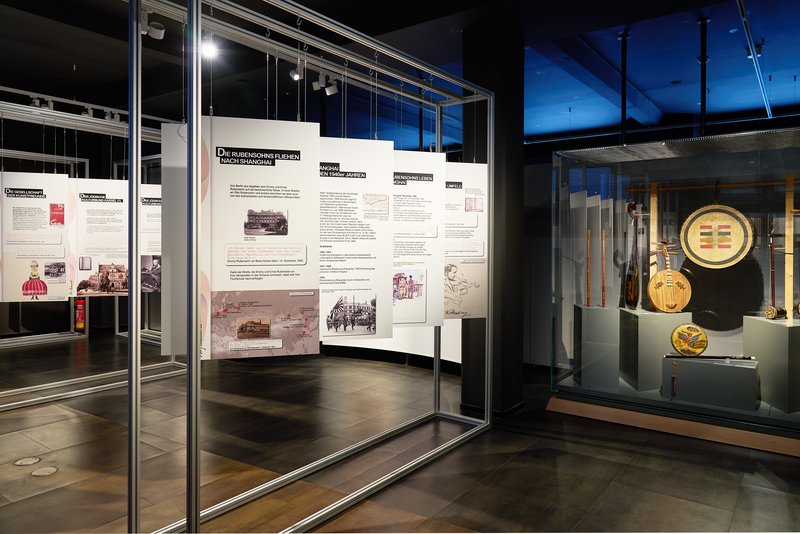
Exhibition view
Patron of the exhibition is Ken Toko, US Consul General of Saxony, Saxony-Anhalt and Thuringia.
The exhibition was organized by the GRASSI Museum für Völkerkunde, the GRASSI Museum für Musikinstrumente, and the Fritz Ascher Society for Persecuted, Ostracized and Banned Art in New York.
It was curated by Matthias Henke, Stefan Hindtsche, Léontine Meijer-van Mensch and Rachel Stern.
Generously supported by the US Consulate General of Saxony, Saxony-Anhalt and Thuringia and by Reinwald GmbH Böhlen.
The exhibition is on view June 25 – January 14, 2024 at Museen im GRASSI, Johannisplatz 5-11, 04103, Leipzig, Second Floor, Foyer and Special Exhibition Space of the Musikinstrumentenmuseum der Universität Leipzig, T +49 351 49 14 2000.
OPENING HOURS: Tuesday – Sunday 10:00 am – 6:00 pm.
A free ticket to visit the exhibition can be obtained from the GRASSI ticket office on the first floor.
Matthias Henke’s richly illustrated, bi-lingual book, “Emmy Rubensohn. Musikmäzenin/Music Patron (1884–1961)” allows a deeper exploration of the curiosity and creativity, passion, resilience and connectedness of Emmy Rubensohn, who revealed in a letter dated September 17, 1946, to Oskar Kokoschka: “Music has faithfully accompanied and always comforted me, through the great pain we have all suffered at the hands of fate, and the grief [we feel] for our dead and the victims.”
Listen to David Dambitsch’s German language exhibition review at Deutschlandfunk, which aired September 29:
DEUTSCH
Emmy Rubensohn (1884–1961) war Netzwerkerin, Musikförderin, Konzertmanagerin, und Briefautorin. Geboren 1884 in Leipzig als Tochter der jüdischen Unternehmerfamilie Frank, besuchte sie schon früh Gewandhauskonzerte und sammelte Autogramme prominenter Künstlerinnen und Künstler ihrer Zeit.
Nach der Heirat mit Ernst Rubensohn 1907 zog sie nach Kassel, wo das Ehepaar ihr Haus zu einem kulturellen Treffpunkt machten, wo Komponisten und Interpreten wie Wilhelm Furtwängler, Walter Braunfels oder Ernst Krenek, oder bildende Künstler wie der Maler Oskar Kokoschka oder der Bildhauer Benno Elkan gastierten. Dank eines „Residenzstipendiums“ konnte Krenek hier seine Oper „Jonny spielt auf“ vollenden, die 1927 ihre Uraufführung in Leipzig feierte, und zum grössten Opernerfolg der 1920er Jahre wurde.
Ab 1933 waren Emmy und ihr Mann Ernst zunehmenden Bedrohungen durch das Naziregime ausgesetzt. Emmy organisierte Konzerte für den Jüdischen Kulturbund, um jüdischen Musikern ein Einkommen zu ermöglichen, etwa mit dem Dirigenten Joseph Rosenstock oder der Pianistin Grete Sultan.
1940 flüchtete das Ehepaar über Berlin nach Shanghai. Auch dort umgab sich Emmy mit Musik und Kultur und organisierte Konzerte. 1947 gelang es dem Ehepaar, nach New York zu emigrieren.
An allen Lebensstationen pflegte Emmy Rubensohn ein weltumspannendes Netzwerk künstlerischer Freunde, das sich anhand des erhaltenen Gästebuchs rekonstruieren lässt.
Zu diesem Freundeskreis gehörten in New York der Geiger Roman Totenberg, der Dirigenten Dimitri Mitropoulos und Alma Mahler-Werfel.
Schirmherr der Ausstellung ist Ken Toko, US Generalkonsul von Mitteldeutschland.
Die Ausstellung wurde organisiert vom GRASSI Museum für Völkerkunde, dem GRASSI Museum für Musikinstrumente, und der Fritz Ascher Society for Persecuted, Ostracized and Banned Art.
Sie wurde curatiert von Matthias Henke, Stefan Hindtsche, Léontine Meijer-van Mensch und Rachel Stern.
Mit freundlicher Unterstützung des US-Generalkonsulates für Sachsen, Sachsen-Anhalt und Thüringen und der Reinwald GmbH Böhlen.
Die Ausstellung ist zu sehen vom 25. Juni bis zum 14. Januar 2024 in den Museen im GRASSI, Johannisplatz 5-11, 04103, Leipzig, 1. OG, Foyer und Sonderausstellungsbereich des Musikinstrumentenmuseums der Universität Leipzig
Öffnungszeiten: Dienstag – Sonntag 10:00 – 18:00 Uhr
Für den Ausstellungsbesuch ist eine Freikarte erforderlich, die an der Kasse im EG des GRASSI erhältlich ist.


